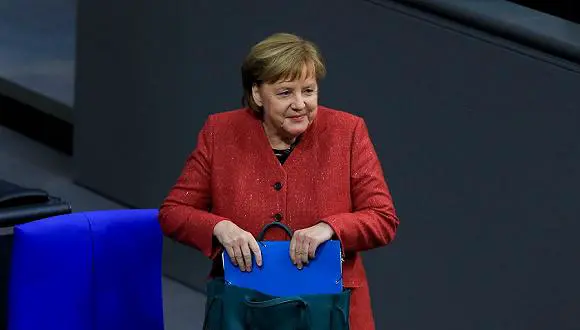Uhuru Kenyatta was elected as Kenya's youngest president in 2013 and sworn in for a second term in 2017 following a controversial election saga that saw the first poll annulled, the re-run boycotted, and a decisive ruling by the East African country’s Supreme Court.
So who is Uhuru Kenyatta, and how did he become Kenya’s leader?
Before politics
Early life
Kenyatta was born in October 1961. Two years later Kenya won independence from Britain, and in 1964 Kenyatta’s father Jomo became the country’s first president.
He attended a top school in Nairobi, before studying politics at Amherst College in the United States.
Business career
Kenyatta pursued a career in business before entering politics. He was ranked as the richest man in Kenya and the 26th richest in Africa in the inaugural Forbes “40 richest Africans” list, with an estimated net worth of 500 million US dollars.
He started a horticultural business before managing his family’s business interests, which include luxury hotels, dairies, banks, media companies and swathes of land.
Political career
Election 2002
Kenyatta was elected to the Kenyan parliament in 2001 and soon became minister for local government. He was mentored by then president Daniel Moi, who named the younger man as his preferred successor as leader of the Kenya Alliance for National Unity (KANU) party in 2001.
Kenyatta ran as the KANU candidate in the 2002 presidential poll, but leading members of KANU quit in protest and the National Rainbow Coalition won the election under the leadership of Mwai Kibaki.
Election 2007
In the 2007 election Kenyatta and KANU backed Kibaki, who ultimately remained as president after a disputed poll.
Supporters of opposition leader Raila Odinga rejected the controversial result, and weeks of violent protests followed. Over 1,000 people died during the unrest.
A coalition was eventually formed with Kibaki as president and Odinga as prime minister. Kenyatta was named deputy prime minister in the coalition government before becoming minister of finance in 2009.
ICC allegations
The International Criminal Court (ICC) accused Kenyatta of crimes against humanity in 2012 for his alleged role in the post-election violence. He was accused of organizing and funding attacks on supporters of Odinga.
Kenyatta resigned as finance minister but maintained his innocence and retained his role as deputy prime minister.
The charges were formally dropped for lack of evidence in 2015.
Election 2013
Kenyatta was elected as the fourth president of Kenya in 2013 in the first round of voting, winning 50.03 percent of the vote. He abandoned KANU, and stood as the candidate for the Jubilee Coalition on a ticket with William Ruto, also indicted by the ICC, to defeat Raila Odinga.
Odinga filed a challenge with the Supreme Court, which upheld the election result.
First presidential term
The Kenyan economy has grown by an average of five percent per year since Kenyatta took power, while borrowing and foreign investment has increased rapidly.
Signature projects included the 3.8 billion-US dollar Nairobi-Mombasa railway, which was primarily financed by China.
Kenya was beset by attacks from Islamist militant group al-Shabab during Kenyatta’s first term, however. The group launched bombing and shooting attacks in retaliation for Kenyan military involvement in neighboring Somalia.
Election 2017
Kenyatta’s victory, this time as the Jubilee Party candidate, in an August 8, 2017 poll was annulled in September by Chief Justice David Maraga over "irregularities and illegalities."
The re-run was boycotted by rival Raila Odinga, running at the head of the National Super Alliance coalition of opposition parties, who claimed enough had not been done to make a fresh election credible.
Kenyatta went on to receive 98 percent of the vote in the re-run on October 26, but on a turnout of just 39 percent.
The result, validated by the Supreme Court on November 20, has done nothing to calm bitter divisions in the country.
(CGTN)
 简体中文
简体中文

